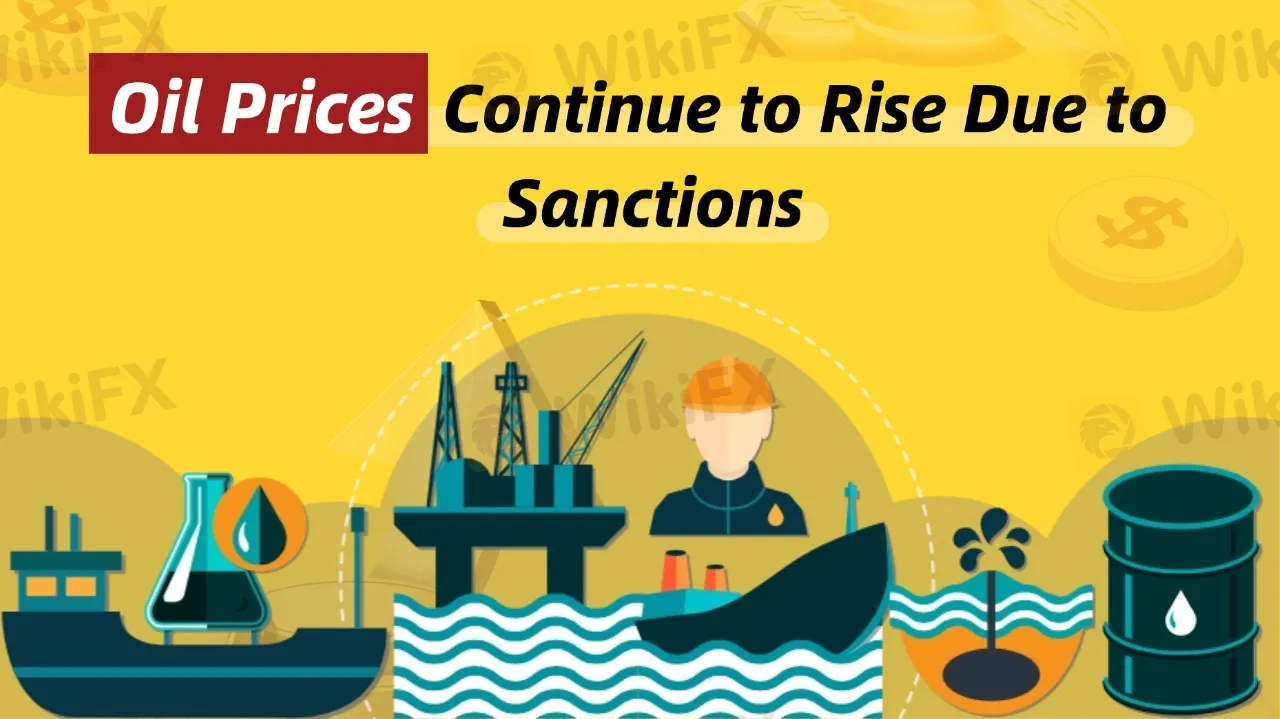简体中文
繁體中文
English
Pусский
日本語
ภาษาไทย
Tiếng Việt
Bahasa Indonesia
Español
हिन्दी
Filippiiniläinen
Français
Deutsch
Português
Türkçe
한국어
العربية
Oil Prices Continue to Rise Due to Sanctions
Abstract:Last Friday, oil prices closed slightly lower but increased for the fourth consecutive week, mainly due to the impact of the latest U.S. sanctions on Russian energy trade, which heightened concerns about oil supply disruptions.

Brent crude futures dropped by 0.6%, settling at $80.79 per barrel, but rose 1.3% for the week. U.S. crude futures fell by $0.80, or 1%, to $77.88 per barrel, climbing 1.7% for the week.
Sanctions on Russia are tightening supply in countries like Europe and India. Furthermore, investors are evaluating the potential impact of U.S. President-elect Trump's return to the White House. His nominee for Secretary of the Treasury indicated plans to implement stricter sanctions on Russian oil.
Following the Gaza ceasefire agreement, expectations grew that the Houthi rebels in Yemen would halt attacks on ships in the Red Sea, which placed some pressure on oil prices.
Despite a slight pullback last Friday, oil prices remain on an upward trend due to concerns over the Russian sanctions. U.S. sanctions on Russian oil exports have intensified global oil supply tightness, driving prices higher. According to HSBC's latest report, the bank raised its 2025 Brent crude price forecast from $70 per barrel to $73, and its first-quarter forecast from $70 to $77. This adjustment mainly reflects the impact of the latest U.S. sanctions on Russia's energy market.
U.S. sanctions have nearly doubled the number of tankers on the sanction list, which has contributed to recent price increases, pushing oil above $80 per barrel. Although this effect may be short-term, Russia's oil and product exports are expected to face significant pressure.
Overall, despite the pullback in oil prices, the uncertainty surrounding global oil supply and U.S. sanctions on Russia continue to support price increases. The market is caught between OPEC+ overcapacity and persistent geopolitical risks.
HSBC expects Brent crude prices to fluctuate between $70 and $80 per barrel, slightly lower than in the past two years. OPEC+'s ample capacity is expected to limit price surges, but geopolitical risks, particularly the impact of sanctions on Russia, could still push oil prices higher. Investors need to closely monitor market dynamics and the further development of sanctions to assess future price movements.

Disclaimer:
The views in this article only represent the author's personal views, and do not constitute investment advice on this platform. This platform does not guarantee the accuracy, completeness and timeliness of the information in the article, and will not be liable for any loss caused by the use of or reliance on the information in the article.
Read more

What Determines Currency Prices?
The price of currency directly impacts investor returns. Understanding the underlying causes of currency fluctuations can help investors make more informed decisions in the foreign exchange market.

AvaTrade Launches Advanced Automated Trading Tools AvaSocial and DupliTrade
AvaTrade launches enhanced automated trading solutions, featuring AvaSocial and DupliTrade for seamless, emotion-free trading. Explore cutting-edge tools today!

Kraken Brings Back Crypto Staking for U.S. Users as Regulations Ease
Kraken reintroduces crypto staking for U.S. users in 39 states, supporting 17 assets with slashing insurance as regulations ease.

T4Trade Enhances Forex Trading with Advanced Tools for 2025
T4Trade empowers traders with advanced tools like trading calculators, Trading Central features, and an economic calendar for 2025.
WikiFX Broker
Latest News
AI Fraud Awareness Campaign: "We're Not All F**ked"
Crypto.com Delists USDT and 9 Tokens to Comply with MiCA Regulations
How to Use Financial News for Forex Trading?
Fake ‘cyber fraud online complaint’ website Exposed!
Day Trading Guide: Key Considerations
GMO-Z com Securities Thailand to Cease Operations in 2025
Oil Prices at $90 to $100 Could Push Philippines Inflation Beyond Target
Do More Liquid Currencies Yield Higher Profits?
Trump Media Expands into Crypto with $250M Truth.Fi Investment
NAGA Launches CryptoX: Zero Fees, 24/7 Crypto Trading
Currency Calculator






